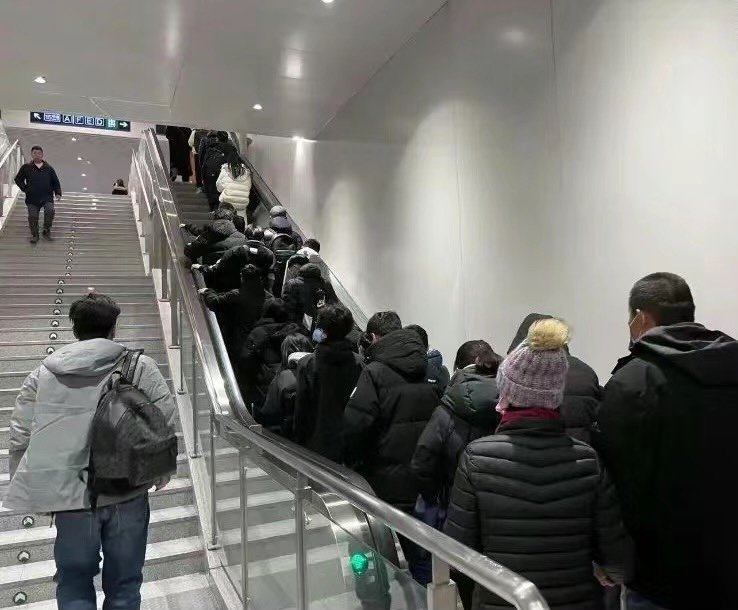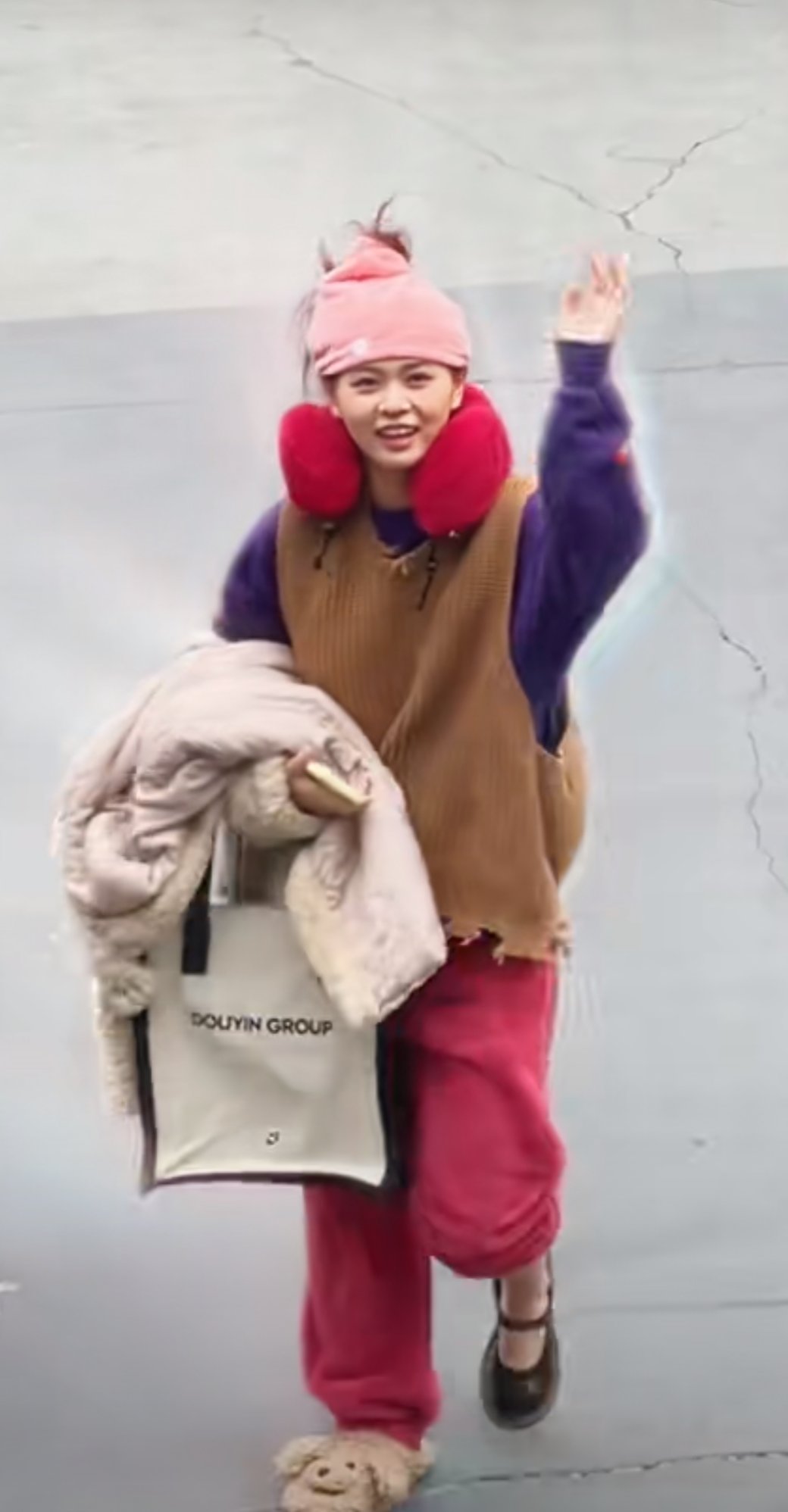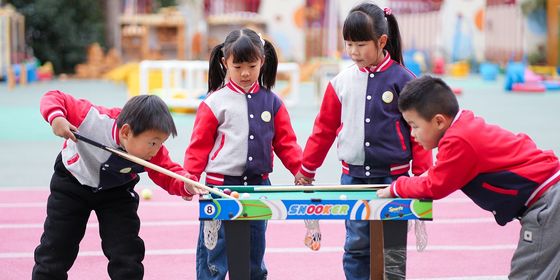A new trend has weary, overworked young urbanites wearing “disgusting outfits” to their office jobs and annoying their bosses in the process
The days of China’s fashion bloggers posting their stylish “Outfit of the Day (OOTD)” are over. Now, young white-collar workers’ social media feeds are full of a new trend: “disgusting work outfits (上班恶心穿搭).”
The craze has young urbanites posting their work clothes online; the more uncoordinated, inconsistent, and ugly the better. Popular images show people in cartoon cotton socks and black high heels; pajamas with knee-high boots; a baggy khaki wool sweater paired with a pink chic coat and a black cycling hat. Colors and styles clash, clothes are worn out and frayed, and accessories make no sense. On the Chinese microblogging platform Weibo, the hashtag “Why do young people always wear ugly clothes to work,” has over 90 million reads. Videos of users showing off their ugly work outfits have garnered millions of views on Douyin (China’s version of TikTok).
The trend seems to have stemmed from a social media post by a chilly restaurant worker in September last year; she claimed her warmth-prioritizing outfit (thick skin-colored leggings with fleece-lined sneakers) attracted the ire of her boss. Dressing poorly and chaotically has since become a way for workers to express dissatisfaction with their boring, underpaid, overtime-riddled office lives, and to save money by wearing whatever they have in their wardrobe rather than buying new clothes. It has also become a competition, with workers trying to wear outfits more awful than their peers.
“With a shabby salary and silly colleagues, who am I getting dressed up for? Besides, Grandma always said not to throw away old clothes and to keep them for work,” reads one post with over 5,600 “likes” on Weibo.
The trend went viral when workers returned to their offices after the Lunar New Year holiday in February. Workers’ motivation is partly linked to their desperation to stay warm in winter. A recent similar craze saw young urbanites purchasing thick green military coats rather than splashing out on more stylish down jackets. Likewise, the style of young workers in Beijing’s Haidian district (where many technology companies are based) gained attention for its uniformity and practicality—Everyone wears a long black down coat, a windproof jacket, and a thin down jacket. “Haidian Style” trended online as well.
In a poll on the online media platform Huxiu in February, the top reasons users picked for wearing ugly clothes to work were “work is tiring, no mood [to care about style]” and “lack of money.” Though in the past workers may have worn luxury items to enhance their prestige, many no longer feel embarrassed about scrimping while youth unemployment and economic pressures weigh on their wallets. The ugly clothes are rarely new purchases. They’re old pieces found in the depths of wardrobes.
Some of the trendsetters have posted how ugly outfits are an expression of their alienation from modern work, calling themselves “employees who don’t care about anything in the office.” Others online have even suggested that this amounts to a much broader process of “young people rectifying the workspace” to their own tastes.
Urban workers certainly feel drained by long commutes, extended work hours, and poor overtime compensation. China’s National Bureau of Statistics says that employees worked an average of 49 hours per week in 2023, up from 47.9 hours in 2022. In Beijing, the average commute time is 47 minutes, and fresh graduates spend the most time getting to work, according to China’s Annual Commuting Monitoring Report of Major Cities by the China Academy of Urban Planning and Design last year. Many workers simply feel they don’t have the time or energy to look good. As one common refrain online goes: “Survival first, everything else can wait.”
Hu Wei, a young office worker in Shanghai, told local news agency Shangguan News in February, “I have to leave no later than 8:10 in the morning, then take two subway lines for at least 45 minutes to work. Sometimes I even bring breakfast to the office. How can I have time to pick out nice outfits?”
Not everyone is understanding of such excuses. “Dressing properly will help improve your financial prospects…if you dress clean and smart for work, your mental state will be the same,” reads one comment with over 400 “likes” on Weibo. Others have rejected sloppy work attire as lazy or highlighting young workers’ lack of ambition.
Scholars are also analyzing the trend. Lin Zeyu, a PhD student at Shanghai University’s School of Sociology and Political Science, explained to The Paper that, for women, the trend represented a resistance to social expectations of their appearance, while Ip Tsz Ting Penn, senior lecturer at Hong Kong Metropolitan University, suggested that the trend had resonated with young workers due to the changes in their identity and appearance, including clothing, as they transitioned from students to employees. This discussion led to the hashtag “disgusting work outfits resonate with young people” gaining over 140 million views on Weibo since the end of February.
Even official state media has commented. People’s Daily Online sought to play down criticisms of young people’s work ethic that stemmed from the trend, framing it as a fun act of self-deprecation by a few social media users.
Meanwhile, an article by The Paper argued in favor of more tolerance for different outfit choices, saying that fashionable attire holds no direct correlation with career advancement. As one netizen quoted in China Youth Daily on February 28 put it: “Wearing comfortable and casual attire allows one to concentrate on work. Even if young people don’t dress well, they still perform their tasks diligently.” The problem doesn’t lie with the people dressing badly but is a reaction to poor or unreasonable office working conditions.
The craze is the latest online take on office work. In recent years, other buzzwords have reflected people’s desire to let go of their ambitions for high salaries and become “buddha-like (佛系),” or a refusal to participate in the career rat race and “lie flat (躺平).” The film Johnny Keep Walking!, released last December, was a surprise box office hit that hooked audiences with its satire of China’s corporate culture, office politics, and corruption.
It seems many young urban workers are resigned to a life of office drudgery, but that doesn’t mean they have to put any extra effort into it. Instead of dressing well and showing ambition, they prefer to keep warm and spare their energy for after they clock off. As one user on the lifestyle platform Xiaohongshu commented recently: “Dressing well won’t get you a raise.”














